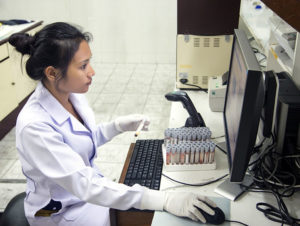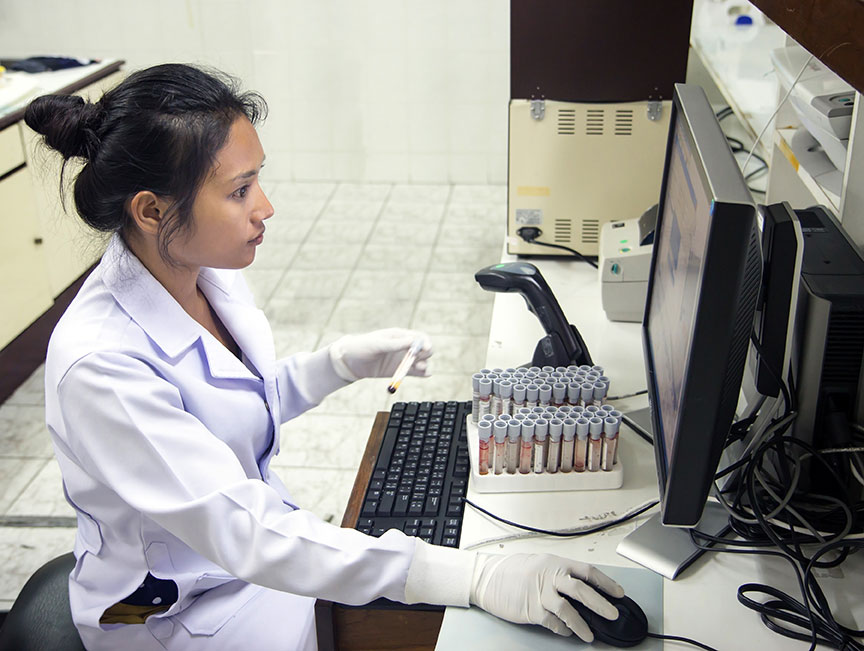Disclaimer: The information on our website is provided for general information purposes only. We make no representations or warranties of any kind, express or implied, about the completeness, accuracy, reliability, suitability or availability with respect to the website or the information contained on our website for any purpose. Any reliance on such information is therefore strictly at your own risk and we are not liable for any damages or losses arising out of or resulting from your reliance on any information contained on our website.
A clinical lab technologist performs complex tests and laboratory procedures that healthcare personnel order. Sometimes, these technologists are referred to as medical laboratory scientists. Clinical laboratory technologists may also specialize in a field. For example, they may become an immunity technologist, microbiology technologist, or clinical chemistry technologist. Watch a video to learn more.
How to Become a Clinical Lab Technologist

A clinical lab technologist usually need a bachelor’s degree in medical technology or life sciences and you would take courses in biology, math, statistics, chemistry, and microbiology with an emphasis in the coursework on lab management, laboratory skills, and safety procedures. Often, students in their senior year of college, attend a university or hospital-based program. Some states require a clinical laboratory technologist to be licensed. Most credentialed institutions require technologists complete an accredited education program in order for one to qualify to take an exam.
A career as a Clinical Lab Technologist also has many benefits. For example, one benefit of this career field is the ability to help others through their work. Also, they enjoy working with other professionals and assisting doctors in finding ways to diagnose and treat illnesses. This career is also at the intersection of technology, science, and healthcare which is appealing to many technologists. There are advancement opportunities in this career and the opportunity to get further education as well.
Job Description of a Clinical Lab Technologist
Clinical lab technologists have a variety of duties depending on where they work and if they are specialized in a particular field. Those employed in small laboratories perform an assortment of tests that have been ordered by a physician, surgeon, or healthcare personnel. Those working in a large laboratory may specialize in a particular task.
A clinical lab technologist analyzes body fluids and records any normal or abnormal findings. They study blood samples used in transfusions and operate sophisticated laboratory equipment like cell counters and microscopes. He or she may perform a number of tests simultaneously using computerized instruments and automated equipment. They enter all data and results from medical tests into the patient’s record and discuss any finding with the physician.
A clinical laboratory technologist may also be required to train and supervise medical technicians. Most clinical laboratory technologists can be found working in state, local, and private hospitals. Others can be found in medical and diagnostic labs, physicians offices, or in state, local, private and professional schools, colleges, and universities.
Clinical Lab Technologist Career Video Transcript
When a doctor orders a series of tests on a patient, it’s the job of medical and clinical laboratory technologists and technicians to prepare and perform those tests to help detect diseases or abnormalities. These professionals analyze body fluids, tissue, and cells. Using powerful medical equipment, they look for bacteria, parasites, and abnormal cells. They also analyze cholesterol levels, and cross-match blood samples for transfusions, documenting their results in reports or patient medical records.
Since they regularly handle samples and medical instruments contaminated by infectious microbes, they wear protective goggles, gloves, and masks to minimize the risk of contagion. In larger labs and hospitals, technologists and technicians tend to specialize in areas like blood work or microbiology. Most work full-time.
In general, technologists supervise the work of technicians. Technicians need an associate’s degree in clinical laboratory science, and technologists need a bachelor’s degree in medical technology or life sciences. Licensure is required in some states, and certification is often preferred by employers. The work can be stressful, especially when they must perform complex tests accurately and in a limited time. However, they gain satisfaction from knowing they’ve provided the vital information doctors need to save lives or cure diseases.
Article Citations
Bureau of Labor Statistics, U.S. Department of Labor, Occupational Outlook Handbook, Medical and Clinical Laboratory Technologists and Technicians.
National Center for O*NET Development. 29-2011.00. O*NET OnLine.

